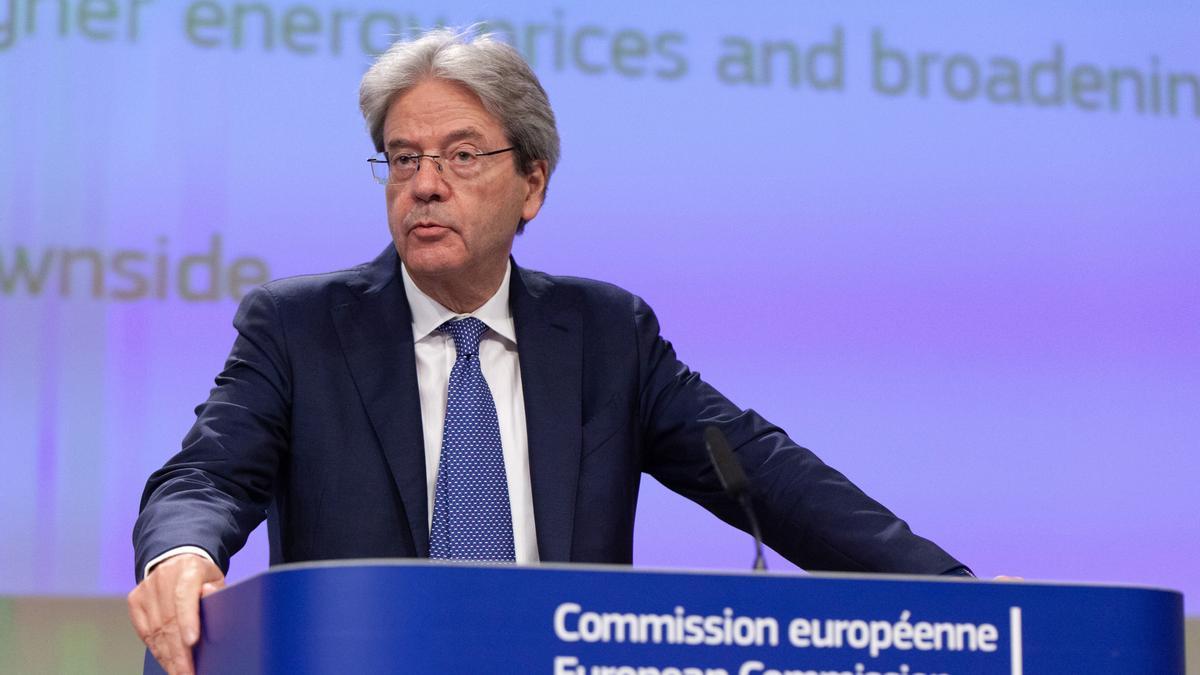Brussels maintains its growth forecast of 1.7% for Spain in 2024

The European economy entered 2024 with less strength and weak growth that will continue this year and which has led Brussels to revise downwards its forecasts for the EU and the Eurozone this Thursday, but its prognosis The European Commission about the development of spanish economy Unchanged. spainAccording to Provisional Winter Forecast Published this Thursday, GDP will grow by 1.7% in 2024, Brussels’ new calculations also confirm that the economy is set to expand by 2.5% in 2023, a tenth more than expected three months ago, thanks to the pick-up recorded in the last quarter of last year.
“Private consumption and, to a lesser extent, investment were the main drivers of GDP growth throughout 2023” while “external demand, which contributed negatively to economic expansion in the second and third quarters of last year,” improved in the fourth quarter. , reports the Commission, which estimates quarter-on-quarter growth of 0.6% between October and December. Hence the best start to the year, in which the Spanish economy will close with “moderate” growth, but much higher than neighboring economies, at 1.7%.
Unlike other organizations like Funcas or International Monetary Fund, which in late January revised Spain’s forecast for this year down to 1.5% of GDP, Brussels has kept its estimate unchanged due to a number of factors. The weak momentum of the tourism sector is still taking a toll, the still weak economic situation of Spain’s main trading partners will limit export dynamics, and the rise in interest rates will have a delayed impact on domestic demand.
But consumption and investment will continue to support economic expansion in the short term. “High real gains in household income and partial utilization of still high levels of household savings are expected to support private consumption,” the analysis said. All this will mean that Spain will remain the largest country with the highest growth rate, far ahead Germany (0.3%), Netherlands (0.4%), Italy (0.7%), France (0.9%),
This development has led Brussels to revise downwards its forecasts due to a decline in domestic purchasing power, strong monetary adjustment, a partial withdrawal of fiscal support and a decline in external demand. According to the new table, the European economy will grow by 0.5% in 2023 (compared to 0.6% projected in November), and the EU will grow by 0.9% (compared to 1.3%) and 0.8% (1.2%). Before emerging this year 2025.
“After avoiding a technical recession in the second half of last year, the outlook for the EU economy in the first quarter of 2024 remains weak,” the Commission confirmed. , will improve trade and wages and increase the flexibility of the European labor market. That is unless geopolitical tensions or the Middle East conflict escalates. For now, the increase in transportation costs due to trade disruption in the Red Sea is expected to have only a modest impact on inflation. However, “new shocks could lead to new supply disruptions that could halt production and push up prices,” the Commission warned.
Labor market in recession
Regarding the situation of the Spanish labor market, and after the dynamism shown last year, Community experts believe that it will enter a recession, although it will continue to contribute to maintaining economic activity, as its wide application will be. Recovery and Resilience Planning, Brussels also hopes it will get support Healthy financial condition of companies And this relaxation in financing terms, Due to all this, the growth rate will again accelerate to 2% in 2025.
Regarding inflation, forecasts confirm that it fell to 3.4% in 2023, mainly due to falling energy prices, and is expected to continue to moderate until reaching an average of 3.2% in 2024, which is autumn. Slightly lower than expected, although the gradual unwinding of most measures adopted by the government to mitigate the impact of higher energy prices will put upward pressure. However, the Brussels diagnosis indicates that it will continue to decline until reaching 2.1% in 2021.
(TagstoTranslate)Brussels has maintained its growth forecast of 1
Source link
